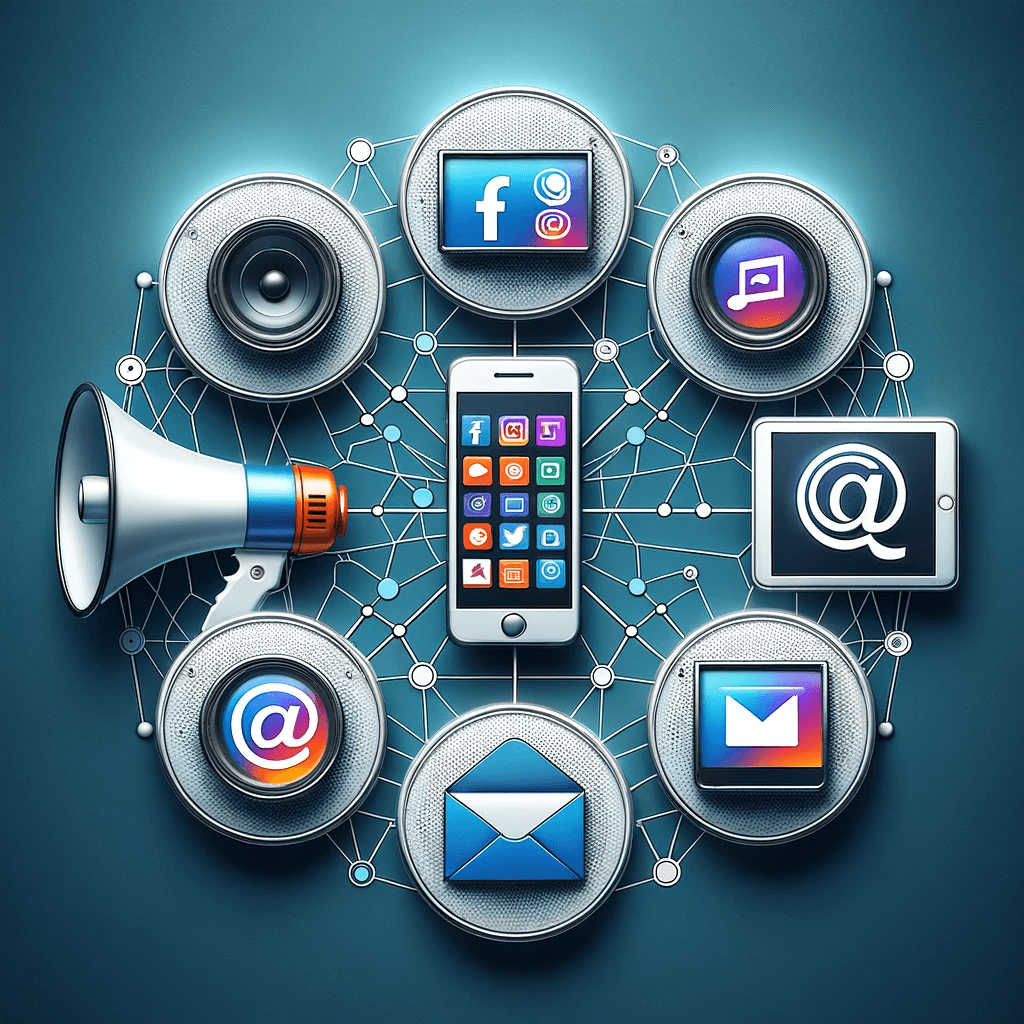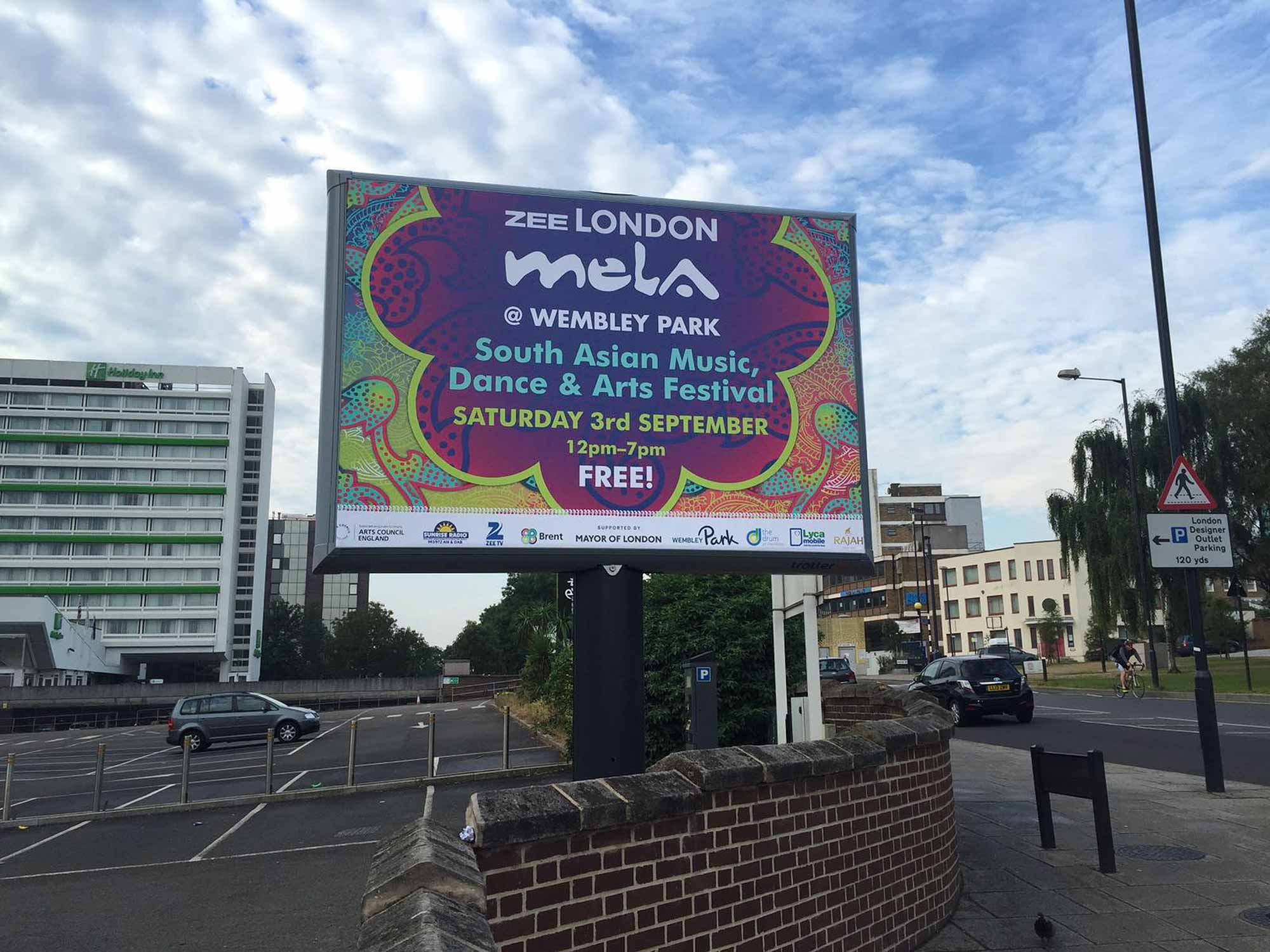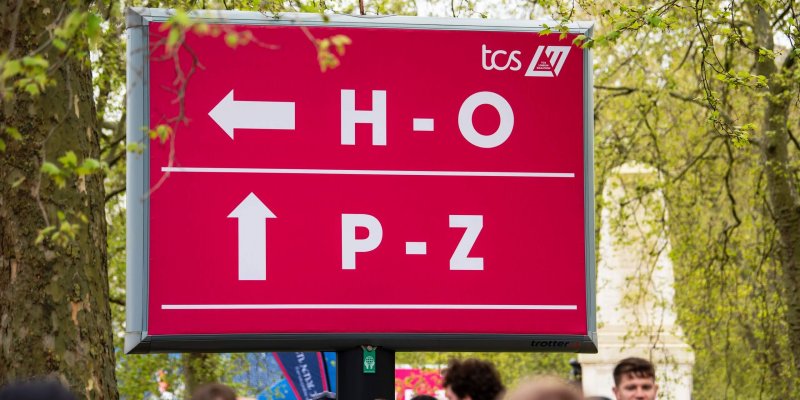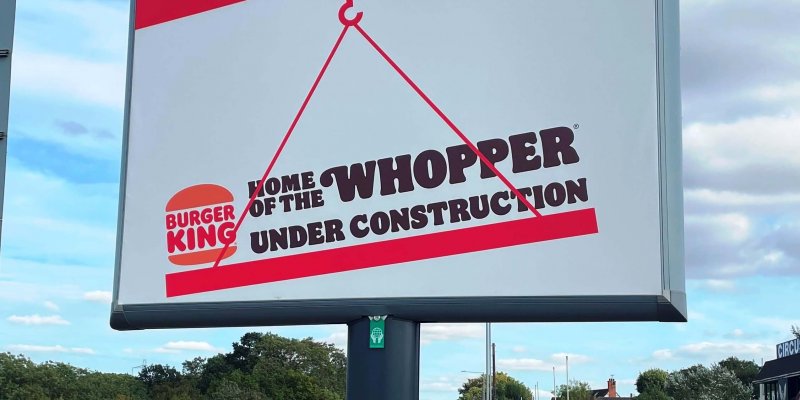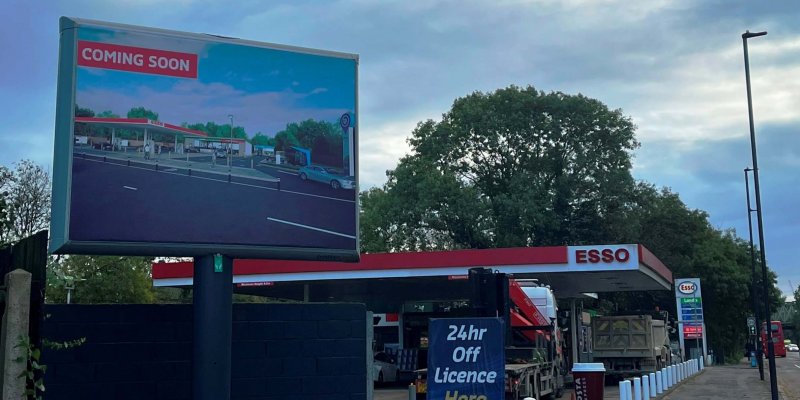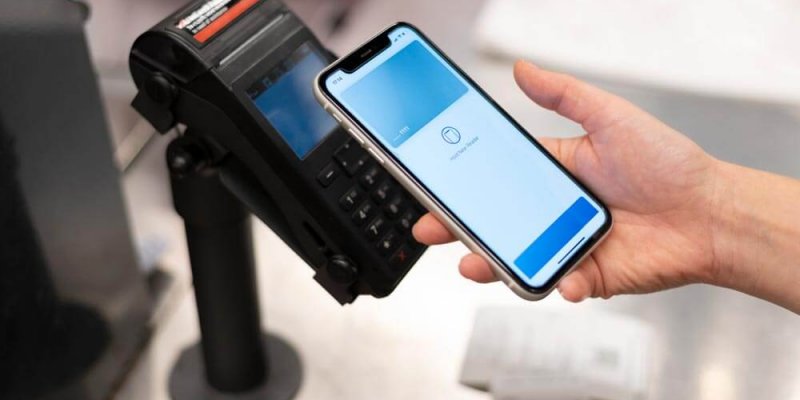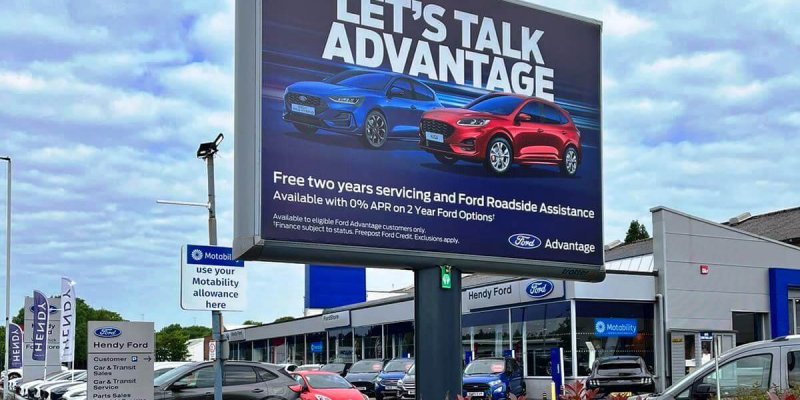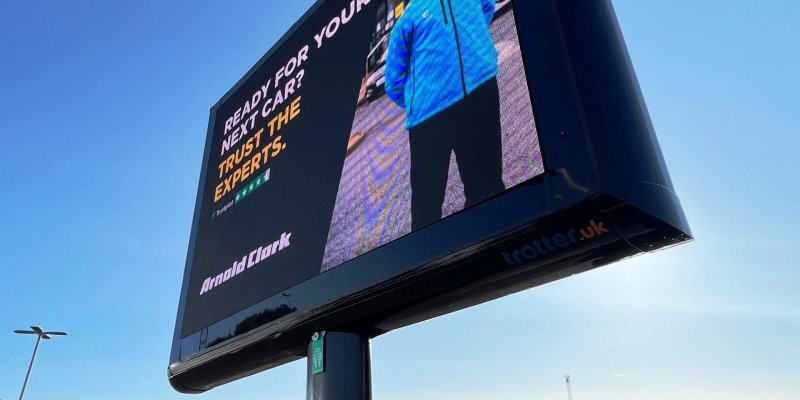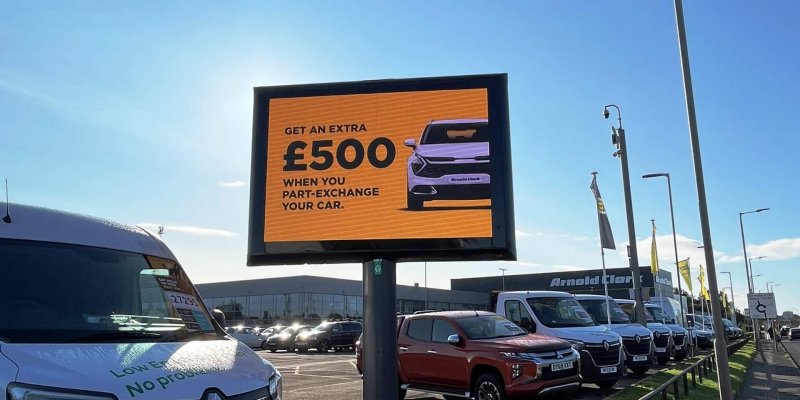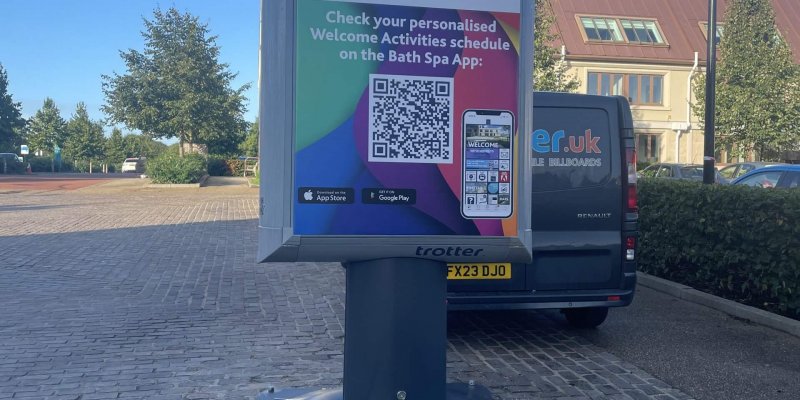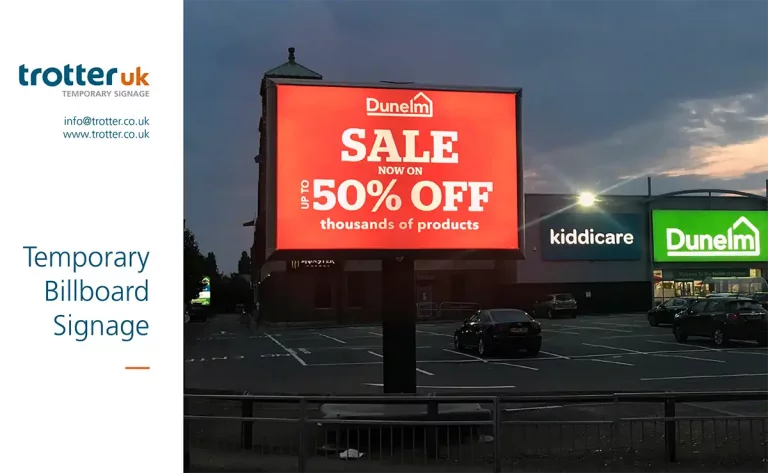With any business, building awareness and generating interest in your products or services is paramount to success. Event marketing is a powerful strategy to create customer awareness and achieving your goals. Whether you’re planning a local gathering, a product launch, or a major conference, we have put together our top tips for event marketing, strategies for engaging your audience, and highlight the benefits it offers to both event organisers and attendees. Additionally, we will examine the role of temporary event signage, encompassing indoor and outdoor signage, along with advertising billboards, in making your event stand out.
What is Event Marketing?
Event marketing is a comprehensive strategy focused on promoting an event to a specific target audience. It goes beyond initial event planning and execution by encompassing the strategies and tactics used to inform people about the event, create excitement, and motivate them to attend. Using various promotional channels, the primary goal of event marketing is to generate buzz around the event and cultivate enthusiasm among potential attendees.
Diverse Marketing Channels
Event marketing offers a wide array of options to effectively promote your event. These channels include social media, email marketing, event websites, content marketing, influencer collaboration, public relations, networking events, partnerships, and sponsorships. Each playing a vital role in reaching your target audience and building anticipation for your event.
Engaging your audience in the lead-up to your event is crucial for its success. To create anticipation, consider crafting teaser content that hints at what attendees can expect, slowly introduce features or clients that will be at your event. Implement countdowns to build excitement or offer early-bird discounts or perks to incentivise early registration, don’t give away all of your secrets straight away, keep your audience engaged and intrigued to learn more. These strategies help maintain interest and enthusiasm in the lead-up to your event.
Here is a breakdown of some of our recommended marketing channels:
- Social Media
Social media platforms like Facebook, Instagram, Twitter, TikTok and LinkedIn are among the most potent tools in an event marketer’s arsenal. These platforms allow you to create event pages, share compelling content, run targeted ads, and leverage user-generated content. However choose your platforms wisely as not all platforms may be beneficial to your event. You need to consider what platforms your target audience are likely to be using. Especially if you have a tight budget you can save time and costs with the targeted platforms.
Why it works: Social media offers a vast reach, enabling you to connect with a broad audience. It encourages organic sharing, enabling attendees to promote your event within their networks. Additionally, it fosters real-time interaction, enabling direct engagement with potential attendees.
- Email Marketing
Email marketing remains a stalwart in event promotion. Crafting well-timed and personalised email campaigns ensures that your audience stays informed about event updates, speaker announcements, and early-bird offers. There are many kinds of software you can use such as MailerLite or Mailchimp. Email marketing is also good to create urgency with mailers such as ‘only a few days to go’ or ‘last tickets remaining’.
Why it works: Email marketing provides a direct line to potential attendees’ inboxes, making it a reliable channel for delivering important event information. It allows for segmentation, ensuring that messages are tailored to specific audience segments, thereby increasing relevance and engagement.
- Website
Dedicated event websites or landing pages serve as centralised hubs for all event-related information. A website will help you be more visible on Google with the right SEO. It can be a simple site with a breakdown of the event and ticket purchasing or a fully informative site with a breakdown of the event incentives and key aspects. Your site could include schedules, speakers, registration options, and other crucial details.
Why it works: Event websites provide a one-stop destination for potential attendees to access comprehensive information. They also contribute to the event’s credibility and professionalism.
- Publication Ads and Advertising Billboards
Depending on the size of your event, advertising through traditional media channels such as outdoor billboards and print ads continues to be a valuable avenue for event marketing. Print ads in magazines and newspapers provide a tangible presence. It is also important to consider on the day signage and Large format Billboards placed in high-traffic areas can capture the attention of passers-by. This can help promote the event schedules, help guide and direct your guests and promote tickets for next year’s event or your event hashtag.
Why it works: Ads, event signage and outdoor billboards offer a physical and visual presence that can leave a lasting impression on potential attendees. They are especially effective for reaching local audiences and complementing digital efforts. Temporary billboards strategically placed at your event location or popular commuter routes generate curiosity and remind individuals of your event.
- Influencer Marketing
Collaborating with industry influencers or thought leaders can significantly expand your event’s reach and credibility.
Why it works: Influencers have a dedicated and engaged following. Their endorsement lends authenticity to your event and encourages their followers to consider attending.
- Public Relations (PR)
Utilising PR tactics to secure media coverage, interviews, and press releases about your event can boost awareness and interest. You can also target set areas for your PR to ensure maximum coverage.
Why it works: PR provides third-party validation and builds anticipation by generating buzz about your event in the media.
- Networking Events
Hosting smaller networking events or meetups leading up to your main event creates a community around your brand and generates excitement. People are more trusting about your offering when you meet face to face.
Why it works: Networking events allow for more personalised interactions and relationship-building, fostering a sense of belonging and anticipation among potential attendees.
- Partnerships and Sponsorships
Partnering with other businesses or securing sponsorships can provide additional marketing resources, financial support, and access to a broader audience. Ask your sponsors to promote your event on their marketing channels.
Why it works: Collaborations amplify your event’s reach by tapping into the established networks and customer bases of partners and sponsors.
Each of these channels contributes to the success of event marketing in its unique way, but their collective power lies in their ability to reach and engage with diverse audiences. Event marketers should carefully select and integrate these channels into their marketing strategy, tailoring their approach to the preferences and behaviours of their target audience. By doing so, they can effectively promote their event, generate interest, and create meaningful engagement that translates into attendance and success.
What are the benefits of Event Marketing?
Event marketing offers numerous advantages for both event organisers and attendees, contributing to the overall success of the event.
For organisers, effective event marketing can significantly boost attendance rates, ensuring that your event reaches its maximum potential audience. This increased attendance not only contributes to the event’s success but also enhances its overall impact. Moreover, a well-structured marketing strategy can guide potential attendees through the entire customer journey, keeping them engaged, informed, and excited about each phase of the event. This positive experience fosters goodwill and loyalty, while also maintaining brand consistency across all promotional materials and channels. Consistency reinforces your brand identity, making it more memorable and recognisable to attendees before, during, and after the event. Event marketing also allows you to craft and communicate a clear and compelling message about your event, capturing your target audience’s attention and encouraging them to take-action. Effective and clear messaging ensures that your event’s value proposition is communicated effectively, ultimately leading to improved return on investment (ROI).
For attendees, effective event marketing ensures that they receive all the information they need about the event, including schedules, topics, speakers, and logistics. This comprehensive information reduces potential stress and enhances their overall experience. Attendees who engage with event marketing campaigns often have access to early-bird discounts, exclusive content, or priority registration. These perks not only incentivise early registration but ensure you provide those attendees with additional benefits, making their investment in the event more rewarding for their loyalty and early interest. Event marketing can also highlight networking opportunities, helping attendees connect with peers, speakers, and sponsors before, during, and after the event. These connections can lead to valuable collaborations, partnerships, and friendships, enriching their overall event experience.
Furthermore, event marketing sets accurate expectations for attendees, ensuring they know what to expect. This clear communication about event details, objectives, and benefits allows attendees to plan their participation effectively, reducing any potential confusion or disappointment.
Why is on the day Event Signage so important?
In addition to digital marketing strategies, event signage plays a crucial role in capturing the audience’s attention. Indoor and outdoor signage guides attendees within the event venue, providing essential information and highlighting key event elements. Outdoor advertising billboards in high-traffic areas create significant exposure for your event, leaving a lasting impression on passers-by and driving curiosity and interest. When strategically placed, signage becomes a powerful tool for generating awareness. At Trotter we have a range of event signage sizes to help engage with your audience.
In conclusion, event marketing is a potent strategy for creating customer awareness and generating interest in your event. By utilising a mix of digital marketing channels and engaging your audience in the lead-up to the event, you can maximise attendance and ensure a successful outcome.

